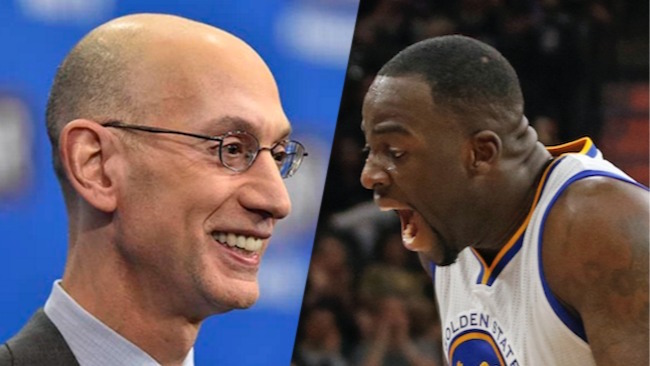
On Monday evening, the NBA announced its decision to upgrade Draymond Green’s kick to the groin of Steven Adams in Game 3 of the Western Conference Finals from a Flagrant 1 to a Flagrant 2, thereby avoiding a suspension for Green in tonight’s crucial Game 4.
The decision was controversial, especially considering that Cavaliers forward Dahntay Jones was suspended one game a day earlier for a similar move to Raptors center Bismack Biyombo. NBA commissioner Adam Silver talked to SportsCenter about the decision, saying the league determined that Green’s move wasn’t intentional. You can watch the video here.
We can’t know what’s in someone’s heart. The fact is, though, we have to do our best to determine intent, because of course, we see in games … take blows to the head, for example. If you punch someone in the face, you get suspended. But we’ve seen in many series, including this year’s playoffs, where guys have incidentally smacked people in the face. Same outcomes, but different penalties.
Silver also talked about the league’s tendency to defer to the officials who were involved in calling the play, in the name of gathering all the information:
The officials have a sense, from the floor. They have context. They’re hearing the players as they talk, they’re hearing the players talk to them. That’s a set of information that we have. And we’re also able to see when Draymond Green says, ‘That’s a natural basketball play for me’ … where he flails his leg out, is that something that’s a typical move on his part? And again, I acknowledge, it was a close call. In our case, we went through the investigation and we determined that upgrading from a Flagrant 1 to a Flagrant 2 was appropriate, but in this case, we did not suspend him.
Whether you agree with the league’s decision or not, it’s nice that Silver is willing to go on television to defend it and explain the league’s process. It’s a level of transparency that wasn’t as common under his predecessor, David Stern.






